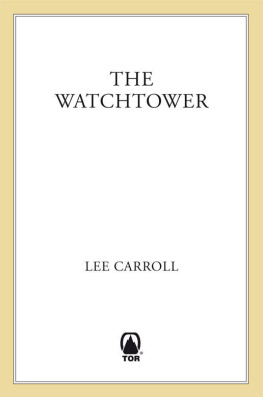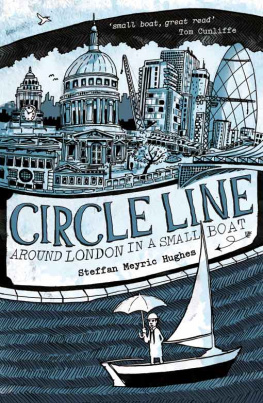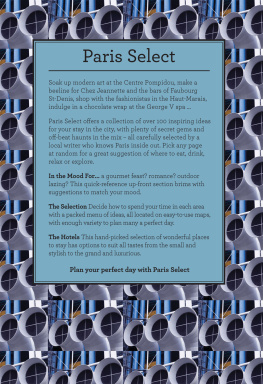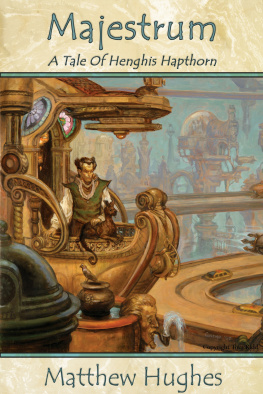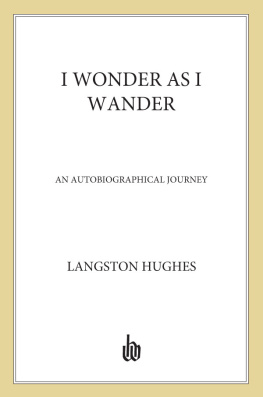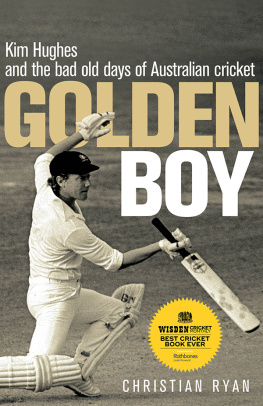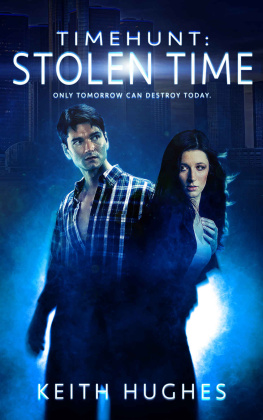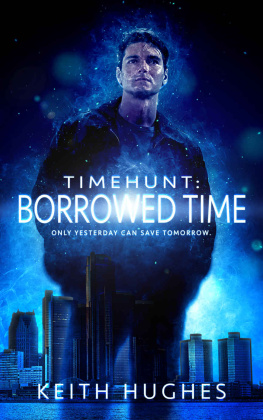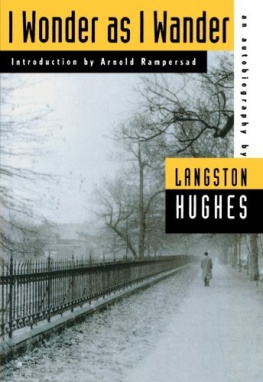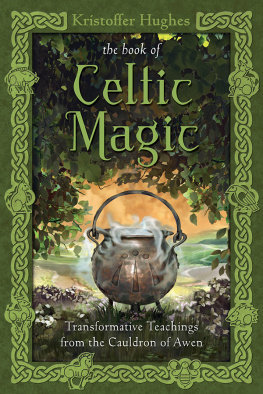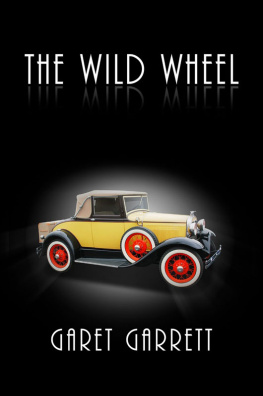
To our daughters, Nora and Maggie
Contents
Acknowledgments
We thank once more our most perceptive and helpful U.S. editor, Paul Stevens, our publicity person at Tor Books, Aisha Cloud, and the fine agents who sold the trilogy, Loretta Barrett and Nick Mullendore. First-time thanks go to our astute new agent, Robin Rue, the most energetic and enthusiastic Simon Taylor and Lynsey Dalladay at our British publisher, Transworld, and our editor, Sebastian Pirling, at our German publisher, Heyne/Random House, who have all been fabulously supportive.
We would like to thank the brilliant poet and critic Eric Ormsby for his public and private support for Lee Carroll. As The Watchtower is part of a trilogy, we renew our gratitude for all those mentioned in Black Swan Rising : Harry Steven Lazerus, Wendy Gold Rossi, Scott Silverman, Nora Slonimsky, Maggie Vicknair, Ed Bernstein, and Sharon Kazzam. Wed also like to thank Amy Avnet for her advice on jewelry making. Deborah Harknesss outstanding scholarly work on Elizabethan science, The Jewel House, has provided invaluable background information.
Wonderful poets and writers Katherine Hastings ( Updraft and Sidhe ), Elizabeth Coleman ( The Saint of Lost Things and Lets ), Marcia Golub ( Secret Correspondence and Tale of the Forgotten Woman ), and Lauren Lipton ( Its About Your Husband and Mating Rituals of the North American Wasp ) have rendered superb feedback to Lee Carroll as both novelist and poet.
The Will Hughes poem Her Ships Dark Shape Drifts Slowly toward the Sun was published in slightly different form and under the title Farewell in Pythagoras in Love by Lee Slonimsky, and appears by kind permission of Orchises Press.
Nothing would be possible without our loving and supportive families.
The Pigeon
The park outside the church smelled like pigeon droppings and cat pee. At least I hoped it was cat pee. After my first week in Paris, I realized that I hadnt seen any cats. Pigeons, yes. Each morning I sat with the pigeons and the still sleeping homeless people, waiting for my chance to sit inside the smallest, and surely the dimmest, little church in Paris in order to wait some more for what I wasnt sure. A sign. But I didnt even know what form that sign would take.
It had all started with a silver box I found in an antiques shop in Manhattan, which I had unwittingly opened for the evil Dr. John Deeyes, John Dee, Queen Elizabeths alchemist, who should have been dead almost four hundred years, but wasntunleashing the demons of discord and despair onto New York City. With the help of some fairiesOberon, Puck, Ariel the whole Shakespearean crew plus a diminutive fire sprite named LolI had gotten the box back and closed it, only to have it stolen by Will Hughes, a rather charming four-hundred-year-old vampire whom Id fallen in love with. Will had taken it to open a door to the Summer Country and release a creature who could make him mortal again so we could be together, so I suppose I could forgive him for that. But why hadnt he taken me with him? I would have followed Will on the path that led to the Summer Country. Will had told me on the first night we met wandering through the gardens outside the Cloisters that he had taken the path once before, following signs left behind by his beloved Marguerite, who turned out to be my ancestor. The first sign had appeared outside an old church in Paris. The path always changed, Will had told me, but it always started in that church. You just had to wait there for a sign that would tell you where to go next.
So when, months after Will disappeared, just when I thought Id gotten over him, an anonymous art buyer sent to my fathers gallery a painting of an old church in Paris, which my father identified as Saint-Julien-le-Pauvre in the Latin Quarter, I knew the painting must have come from Will and that he was asking me to join him on the path to the Summer Country.
I made my plane reservation right away and booked my room at the Htel des Grandes coles, the little Latin Quarter pension where my parents had spent their honeymoon. I told my father and friends Jay and Becky that I was going to Paris to research new jewelry designs at the Louvre and in the Museum of Decorative Arts. I read in their eyes how thin the pretext was, but they hadnt questioned me too deeply. After the events of last falla burglary, my father getting shot, me ending up burned and battered in Van Cortlandt Park in the Bronxthey didnt need to know more to think I could use a couple of weeks away. And what more diverting place to go than Paris?
If they had known I planned to spend my mornings sitting in a dim, musty church waiting for a sign from my vampire lover, perhaps they would have suggested a month in the Hamptons instead.
On my seventh morning in the church I had to admit that the old women with their string bags and the old men with their copies of Le Monde were all more likely to receive a sign from the doe-eyed saints on the walls than I was. I slipped out of the quiet church, avoiding the eyes of the black-robed priest, who, after seeing me here for seven mornings in a row, must have wondered, too, what I was looking for, and escaped into the only slightly more salubrious air of the Square Viviani.
Like the church, the Square Viviani needed something to boast of besides its homeless inhabitants and free Wi-Fi access. For Viviani, it was the oldest tree in Paris, a Robinia pseucacia fabaces planted in 1602 by the botanist Jean Robin, now leaning so perilously toward the walls of Saint-Julien that I found myself worrying that one of these mornings, on which I would no doubt still be sitting here waiting for my sign, the oldest tree in Paris would fall onto the oldest church in Paris and collapse with it, like the two old drunks curled up like nesting spoons on the next bench.
To keep such an event from happening, the city of Paris has propped the twenty-or-so-foot-tall tree up with a cement girder ingeniously sculpted to look like a tree itself, and the actual tree has been fortified against some blight with an unsightly patch of gray cement, one large enough that I could probably have squeezed into the hole it filled. It made me feel sorry for the tree or perhaps its just that I was feeling sorry for myself.
To make my self-pity complete, a pigeon landed on my head. I was so startled I let out a yelp and the pigeon flapped indignantly to my feet and squawked at me. It was an unusual one, brown and long-necked, perhaps some indigenous European variety. I looked closer and the bird winked at me.
I laughed so loud that I woke up one of the sleeping drunks. She clutched her ancient mackintosh around her scrawny frame, pointed her bent fingers at me, and gummed a slurry of words that I interpreted to mean He fooled you, didnt he? Then she put her fingers to her mouth and I realized she was asking for a cigarette.
I didnt have a cigarette so I offered her a euro, and she slipped it into an interior pocket of her mac, which I noticed was a Burberry and her only garment. She pointed again to the brown pigeon, who had taken up a commanding pose atop the Robinia pseudoacacia, from which it regarded me dolefully.
Amlie, the woman said.
I pointed to the pigeon and repeated the name, but she laughed and pointed to herself.
Oh, youre Amlie, I said, wondering if it was her real name or one shed taken because of the popular movie with Audrey Tautou.
Garet, I told her, then gave her another euro and got up to go. If I needed a sign to show me that I was spending too much time in the Square Viviani, it was being on a first-name basis with the homeless there.
I decided to go to the other place Id frequented this weeka little watch shop in the Marais. The owner, ninety-year-old Horatio Durant, was an old friend of my parents. On the first day I had visited him, he took me on what he called a horological tour of Paris.
Next page
